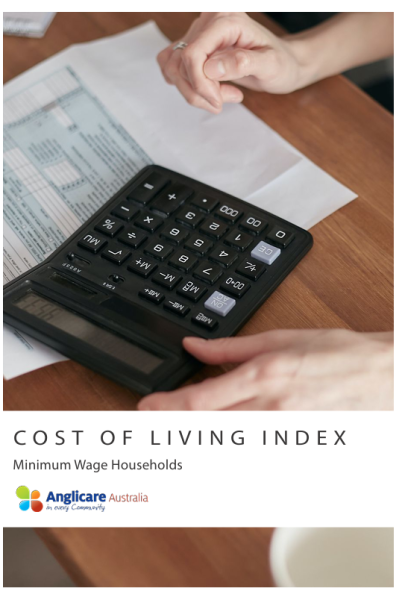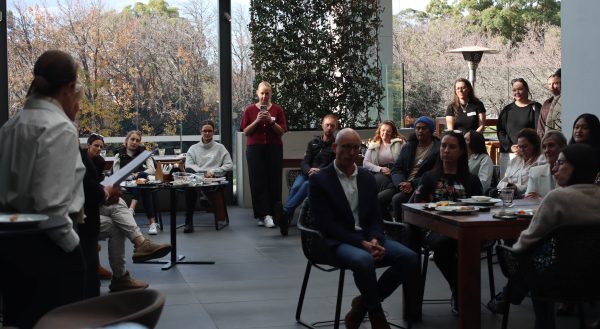Written by Anglicare CEO, Jeremy Halcrow.
Supporting justice for Australia’s first peoples is core to Anglicare’s mission. So how should we respond to this week’s debate about Australia Day?
To be honest, I was somewhat shocked by the Australia Institute poll that found just 38 percent of Australians know the reason Australia Day is January 26.
Australia Day was not designed to mark an event that unifies us as a people. It does not remember Australia’s formation as a Federation or our moment of independence from Britain. Given that so few Australians are aware that Australia Day actually marks the landing of the British Navy in Sydney Cove to establish a penal colony, how can we respond sensibly to the pain felt by many Aboriginal people feel, associated with this date?
Of course, there is no one Aboriginal view. Alice Springs councillor Jacinta Nampijinpa Price said that within Aboriginal communities in the Northern Territory she had “never heard anybody talk of the pain of Australia Day… Everybody I know celebrates the day with enjoyment and pride.” Arguing that changing the date of Australia Day was the sort of symbolic act that does not make a difference in assisting Aboriginal people “find genuine freedom and empowerment to initiate meaningful and lasting change”, she claimed the campaign to move the date was a “pathetic attempt at appeasing resentment, anger and white guilt”.
Nevertheless, it would seem many Aboriginal people are grieved by the date chosen for Australia Day. Indeed a poll of 1600 people by the National Congress of Australia’s First Peoples, found that 83 per cent supported changing the date of Australia Day.
Co-Chair of National Congress, Rod Little, said Indigenous Australians have little to feel good about towards the day. “Do you think it was good for our ancestors to feel as though they were disposessed of their lands, there were killings, there were massacres,” he said. “To have the circumstances we have today in our education outcomes, our unemployment, our incarceration rates, our health rates, really what good has come from that first landing?”
A third more radical view was put by Aboriginal author Tony Birch, who is a Senior Research Fellow in the Moondani Balluk Academic Centre at Victoria University in Melbourne. Writing in IndigenousX, he is critical of the “change the date” campaign because “it suggests that the offence being caused by current Australia Day celebrations can be reduced to the narrowness of the date in question – 26 January”.
“A change to the date of an unreflected national pageant will do nothing to shake the collective psyche from a pathological need to wave a flag dominated by the symbol of imperialism and bloody conquest,” he wrote, adding that he would attend an Invasion Day event to mark January 26.
Unlike Americans, Australians struggle to tell their own national story as a thread within a global frame. Perhaps it’s a failure of a broad historical education. Otherwise, it’s hard to understand some Australian’s unwillingness to see the founding of Australia, at least in part, as a military invasion. Little understood today is that the founding of Sydney was a direct response by the British, especially by its navy, to the loss of the American colonies only a few years before in Washington’s Revolutionary War. Sydney would be the stone that proverbially killed two birds. Firstly, the Brits needed somewhere to replace America as the place to exile its convicted criminals. But equally importantly, the venture was run by the British armed forces because there was a genuine military purpose to establishing a British naval port in the Pacific.
When we think about Australia Day, the Uluru Statement from the Heart is a wellspring of wisdom that is worth returning to drink.
“Our Aboriginal and Torres Strait Islander tribes were the first sovereign Nations of the Australian continent and its adjacent islands, and possessed it under our own laws and customs… With substantive constitutional change and structural reform, we believe this ancient sovereignty can shine through as a fuller expression of Australia’s nationhood.… When we have power over our destiny our children will flourish. They will walk in two worlds and their culture will be a gift to their country. We call for the establishment of a First Nations Voice enshrined in the constitution. Makarrata is the culmination of our agenda: the coming together after a struggle. It captures our aspirations for a fair and truthful relationship with the people of Australia and a better future for our children based on justice and self-determination.”
My understanding is that Makaratta is a “negotiation of peace”. In the Yolngu culture of Arnhem Land it was a ceremonial ritual symbolizing the restoration of peace after a dispute.
Given the political divisive nature of the debate around Australia Day, it seems unlikely that moving the date would unify us as a people. An alternative hope might be to reclaim or redefine the purpose of January 26. As a nation, we need to find a more unifying cause to mark on this day; a reason for all Australians, Aboriginal and non-Aboriginal, to celebrate. Would it help if Australia Day became the date the Australian Government finally negotiated a settlement (or treaty) with this continent’s first people? There is poetry in this symmetry. Australia Day as Makarrata Day? Perhaps then we might be able to close together a 230 year wound, opened on January 26, 1788.


